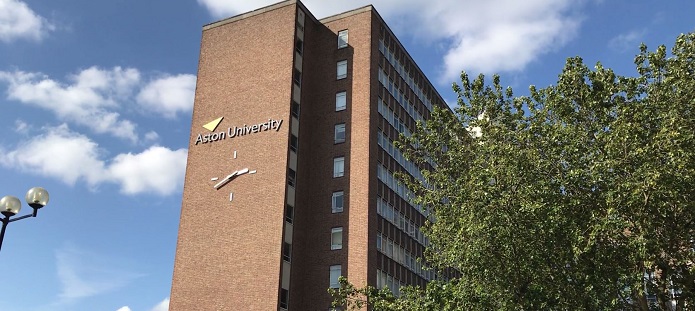
Academics' Palestinian trip boosts optometry teaching at Aston University
Eye care students at Aston University have been benefitting from Middle Eastern expertise thanks to Erasmus+.
The Birmingham-based university used International Credit Mobility (ICM) funding to work with An-Najah National University in Nablus, in the Occupied Palestinian Territories, to improve teaching of optometry and ophthalmic practice.
Staff from Aston travelled to Nablus, and their counterparts to Birmingham, to observe teaching methods and to share knowledge and research about eye conditions unique to each other’s environments, which could then be passed on to students.
“One of my colleagues, Professor Frank Eperjesi, had worked with the head of optometry from An-Najah previously on a low-vision patients project,” said Dr Shehzad Naroo, a Reader in the Ophthalmic Research Group at Aston.
“That was an international project with the USA, Canada, Denmark, lots of partners, and from that they developed this Erasmus idea. There was an appetite to do something where our universities would collaborate on a larger scale – and that stayed throughout the project.
International Credit Mobility helps you grow and learn as an individual and creates wonderful relationships with like-minded people that you otherwise probably couldn’t connect with
“The objective really was to exchange best practice in teaching and look at the different sorts of climates they work under at An-Najah and the different sorts of patients that they see. They do a lot of things that we don’t do.
“A lot of optometry programmes around the world are probably not as research led as some of those in the UK, such as here at Aston, so it was trying to see what research they could do, what research they are doing, look at the quality of the research, and if they wanted to get it published where they would do that.
“When they came here they had the opportunity to visit not only our optometry school but also some of the local partners we work with for our students, such as some of the local eye hospitals and eye clinics.”
In return, the more patient-focused course at An-Najah allowed staff from Aston access to a range of conditions rarely encountered in the UK as they worked alongside local researchers who provide screening programmes in rural villages with poor eye care.
“There are lots of differences in conditions and treatment between the two countries,” said Dr Naroo. “Obviously climate will be one, it’s much hotter there, and it’s a much younger population as well.
“Here we would have much more diabetic retinopathy and more cataracts, for example. There, they will have cataracts but they might happen at a much earlier age because of the UV light.
“Diet is also very different and that can play a big part. One of my colleague’s big areas of interest is ophthalmic disease and nutrition.
“Some of the eyecare practices that I saw we don’t have in the UK and vice-versa, some of the things they will have seen here that optometrists do, they don’t do. The role of the practitioners are slightly different because of the country’s needs.
“In the UK, when you think of an optometrist, you think of going to the high street to purchase spectacles. In Palestine, the healthcare aspect is more important than in the UK.”
As well as improved knowledge and teaching, the Erasmus+ project brought other benefits for Aston University, said Dr Naroo.
“We can show students that we have connections in quite fantastic locations. It’s a big world out there and you’ve got to see it.
“International Credit Mobility helps you grow and learn as an individual and creates these wonderful relationships with like-minded people that you otherwise probably couldn’t connect with, learning from their unique situations. We created life-long friendships.
“We’re lucky at Aston because we have a team who are very keen to help facilitate these relationships and a university that’s keen to exploit these international avenues.”
Has Aston University's international experience left you feeling motivated? Discover more about International Credit Mobility.
